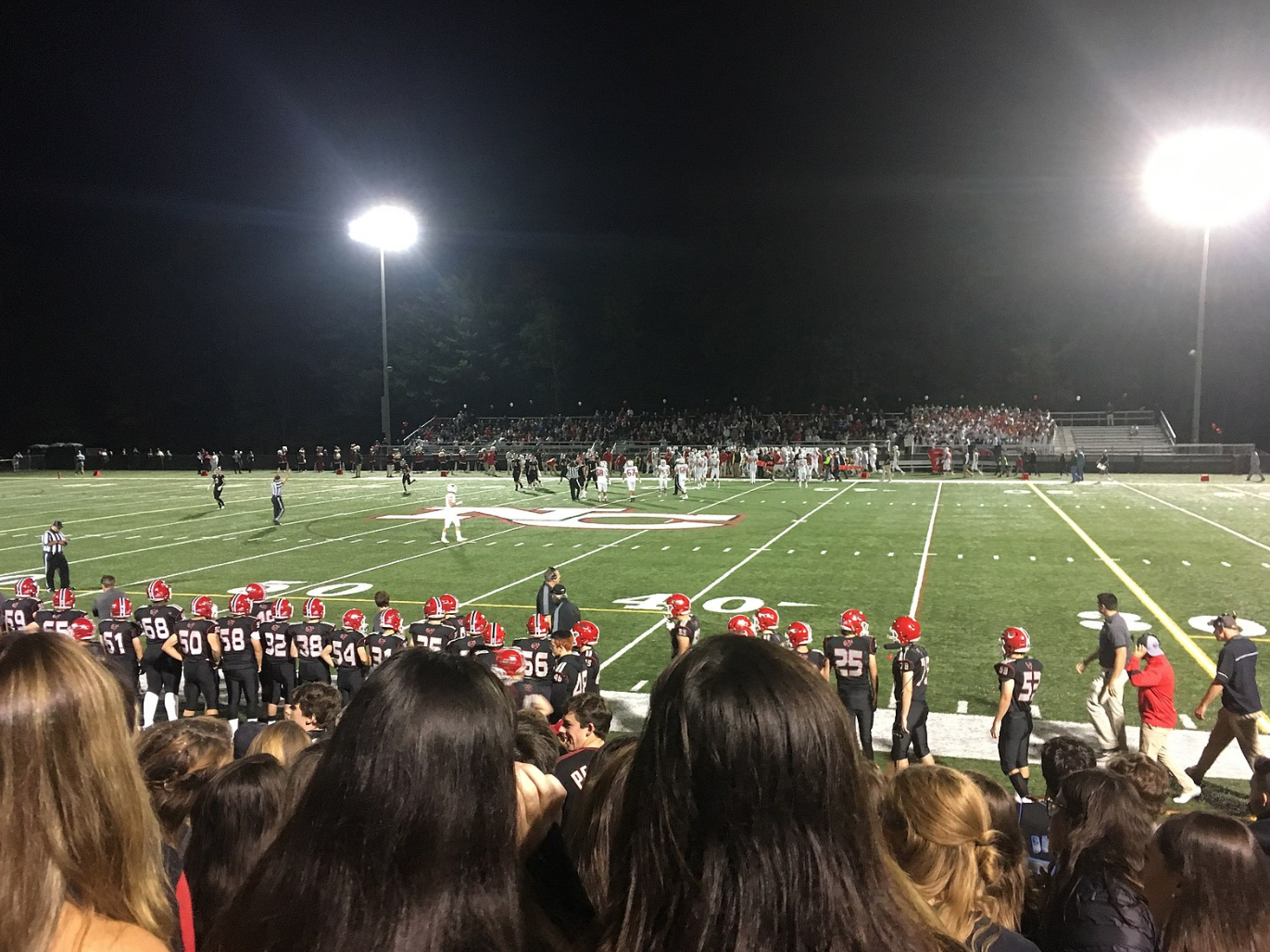Friday night football is a tradition in the state of Texas, with high school games often attracting very large crowds. Today, I came across a couple of news stories that suggest this cultural tradition indirectly impacts public policy.
Bloomberg has a story about Governor Abbott’s attempt to expand school choice in Texas. He is running into predictable opposition from the Democratic Party, which tends to support teachers unions. But Democrats are in the minority in Texas, and Abbott must also contend with opposition from rural Republicans:
The efforts have been met with stiff opposition not only from Democrats – traditional allies of public education – but also rural Republicans who fear that more parents pulling their kids out of the local schools will decimate funding for institutions that serve as community hubs and a source of regional pride. An additional factor for many GOP lawmakers outside cities is that their sparsely populated districts often don’t have any private schools, limiting the usefulness of the [education saving] accounts for those who don’t want to homeschool their children.
Perhaps government monopolies seem less oppressive in smaller towns where citizens have more influence over public policy. For example, I suspect that rural Texas school boards are less likely to impose “woke” approaches to teaching. If the local football team is a “source of regional pride,” then school choice seems less appealing than in a bigger city such as Dallas or Houston.
A post written by Matt Yglesias looked at a very different industry, but reached a similar conclusion:
There’s a very widespread misperception that the biggest companies have the most clout in politics, when actually highly fragmented industries like auto dealers have more clout as a collective. Just a small example is that when congress was putting the Dodd-Frank financial regulation overhaul together, Elizabeth Warren rolled the entire financial services industry and got her Consumer Financial Protection Bureau created. But to round up the votes in congress, she had to swallow an exemption from CFPB oversight for auto loans because the car dealerships had the clout to demand that.
The key to dealership strength is that there’s a dealership owner (or several) in every district, and they are rooted in the local community — often involved in sponsoring sports teams, visible on local television news, and generally playing a major role as a local influencer. People feel sentimental about local businesses. Republicans like free markets but they love businessmen, so if businessmen want to back an anti-market policy, Republicans are inclined to agree. Democrats are more skeptical of businessmen but less enthusiastic about markets, so it lands in the same place.
In California, the Democratic Party is far more powerful than in Texas, and hence the prospects for education reform are much bleaker. Indeed, Abbott may succeed in the end despite rural opposition. But California is more market friendly in terms of auto retailing, with new manufacturers such as Tesla able to sell directly to consumers. (This does not apply to manufacturers with existing dealer franchises.)
Many people on both the left and the right assume that the US is a free market economy, although they may differ on whether that state of affairs is desirable. In fact, the auto retailing industry is fairly typical; there are hundreds of similar examples. Most US industries are heavily regulated and the regulations generally favor producers at the expense of consumers. We have a large pro-business political party and a large pro-bureaucrat political party. We do not have a significant pro-market political party.


READER COMMENTS
Ravi Smith
May 28 2023 at 2:00am
Scott,
Good points! This is also one of the best reasons why local government works better than higher levels of government in the US. The federal government has more opportunities for rent-seeking and is just adding up local electorates (so is mostly useless at dealing with externalities unless you already have a geographically-dispersed, local community-connected political base). The future of the Democratic Party must either be greater party discipline to act as an encompassing interest (which isn’t feasible), or greater empowerment of interconnected local communities. The latter also provides much faster feedback in determining which policies work.
steve
May 28 2023 at 4:45pm
Always trade offs. Texas kids get to learn the Earth is 6000 years old and vaccines are a hoax. (My impression from my time living in Texas is that most parents pay scant attention to education but lots of attention to football. For that matter, here in PA we seldom saw other parents at a school board meeting unless they were talking about a sports related issue like lighting, the grass, sprinkler system, gym floor, etc. That was prior to covid.
Steve
Travis Allison
May 29 2023 at 12:19pm
Scott, you said, “In fact, the auto retailing industry is fairly typical; there are hundreds of similar examples.”
That sentence somewhat surprised me. Hundreds? I would list: banking, occupational licensing. After that, I am somewhat drawing a blank. Maybe education too, though in that case it’s a hairball because education is subsidized through government money. Could you name 15 other industries that have the type of regulations that are primarily to restrict competition, rather than safety related?
Scott Sumner
May 29 2023 at 1:36pm
Obviously airlines and taxis. Domestic shipping (Jones Act).
Many aspects of the health care industry. (In Poland, you can buy contact lens from vending machines.)
Tobacco.
Agriculture. Law. Various aspects of the real estate industry. Insurance.
You mention occupational licensing, but that’s not just one industry, it’s many dozens.
Many manufacturing industries are protected by trade barriers. Also natural resource industries such as lumber.
It’s actually more difficult to find industries that are not protected in one way or another.
This is not my area of expertise, but I’m confident that an expert could cite many more examples.
Comments are closed.